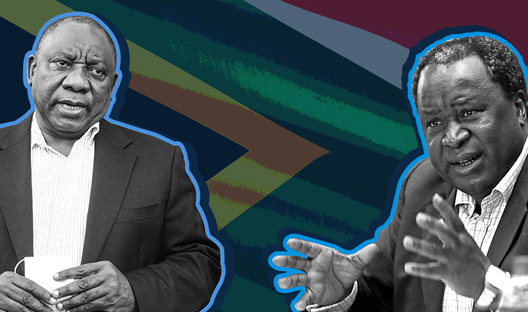Key takeouts
- Rand gains could extend through R11.55 to the US dollar and towards R11, barring any further credit rating downgrades for SA and a credit-positive Budget
- Credit rating agencies will be watching out not only for fiscal consolidation, also the avoidance of excessive indirect and direct tax hikes
- Wealth taxes will be in focus in next week’s Budget, as well as on VAT
- Markets will be looking for signs in tonight’s SONA that the government is looking for ways to remove impediments to faster growth

Get all Investec's insights on the latest Budget Speech and SONA
Our economists, tax experts, personal finance and investment experts unpack what the latest fiscal measures mean for income, savings and daily expenses of individuals and businesses.
Election of the President of the Republic of South Africa
– Parliament of the Republic of South Africa
Good gains
The rand strengthened on Thursday, 15 February 2018 on the news of Jacob Zuma’s resignation as president and the appointment of Cyril Ramaphosa in his place. It broke through the R11.70 level to the US dollar, firming to R11.5997. It was R14.48 against the euro and R16.31 to the pound.
The rand did find resistance at the R11.60 level, although Ramaphosa’s comments at the State of the Nation Address (SONA), now rescheduled for Friday, 16 February 2018, may propel the domestic currency convincingly through that level.
Market optimism towards SA has risen of late. Net foreign portfolio flows into SA’s equity market are now close to R40bn since Ramphosa’s election to President of the ANC. Incoming data are likely to show further inward investment on his recent investiture as President of SA.
The good gains the rand has made could be extended towards R11.55, and move towards R11.00, barring any further credit rating downgrades for SA and a credit-positive Budget.
Read more: SA down(graded) but not out
The good news is that GDP growth might surprise on the upside in the last quarter of 2017 and first quarter of this year, lessening the fiscal deficit for 2017/18 to -4.0% of GDP (previous estimate -4.3% GDP).
However, it is the 2018/19 deficit and borrowings (net/debt) projections that will be in particular focus for the markets and the credit rating agencies, as well as the projections on these metrics over the rest of the medium-term expenditure framework period.
What the rating agencies will be looking out for
But just as much as the rating agencies are watching for fiscal consolidation, so they are watching for the avoidance of excessive indirect and direct tax hikes, which could strangle economic growth. South Africa is only currently expected to see economic growth of around 1.5% y/y this year, and slightly higher next year, as many areas of SA’s previous institutional strengths need to be repaired.
The risk is that economic growth can fall back towards 2016’s 0.3% y/y rate this year and next if private sector spending stalls (on excessive tax hikes). The credit rating agencies worry about SA’s anaemic economic growth rate, and concomitant poor GDP per capita performance, just as much as they worry about the hefty rise in borrowings and so insufficient fiscal consolidation.
Despite some political change and perceived improved governance at Eskom, little further tangible progress has to date yet occurred to avoid Moody’s from awarding SA junk status since the severe fiscal slippage at last October Medium Term Budget Policy Statement. Consequently, the Budget will be scrutinised for cost savings, improved economic-growth-led revenue forecasts and lower borrowings.
Focus on tax changes in the Budget
Wealth taxes are expected to rise in areas like capital gains tax and estate taxes (although not officially deemed wealth taxes), while a land tax has also been mooted (above municipal rates and taxes), and pressure on high net worth individuals is merely expected to increase. This could lead to further externalisation of assets as the tax burden becomes ever heavier.
Sin taxes (on alcohol, tobacco etc) are expected to rise as usual in the Budget as well as government taxes on fuel. VAT on fuel has been discussed. This could add a substantial amount to tax revenues but would increase the tax burden across all income bands, but particularly for the poor whose spending on travel already makes up a very large part of their monthly expenditure.
Bracket creep relief is once again unlikely in the upper and upper-middle-income bands. This will help fill government coffers along with the already announced sugar tax for this year. Last year an additional top tax bracket was introduced, at 45%, for incomes above R1.5m a year, and the Budget could institute either a hike to 46% or replace this top tier with another one starting at R2.5m a year, with a new top marginal tax rate.
Corporate tax rates are not expected to rise as they are already high, but then so are personal income taxes compared to many other peer economies. Expenditure pressures from the decision to offer free tertiary education, as well as from escalating interest payments on debt (to the largest expenditure item) will also need to be addressed.
Tight and tough
The Budget is likely to be tight and tough. While expectations will be for an improved economic growth outlook (and so higher GDP growth forecasts), fiscal consolidation is necessary in future years. Free market reforms are also necessary to support the upswing in investor sentiment since end December, and allow it to translate into faster economic growth and a substantial reduction in unemployment.
A big ask, but we will receive indications on all of this from SONA tonight. Ramaphosa could well deliver a cheering speech, with reference to overcoming key impediments to faster economic growth in SA, such as overcoming the impasse in the mining sector and other policies that have deterred private sector fixed investment (both foreign and domestic).
Read more: Thoughts on SONA 2018
About the author

Annabel Bishop
Chief Economist of Investec Ltd
Annabel holds an MCom Cum Laude (Economics and econometrics) and has worked in the macroeconomic, risk, financial market and econometric fields, among others, for around 25 years. Working in the economic field at Investec, Annabel heads up a team, which focusses on the macroeconomic, financial market and global impact on the domestic environment. She authors a wide range of in-house and external articles published both abroad and in South Africa.
Get Focus insights straight to your inbox




